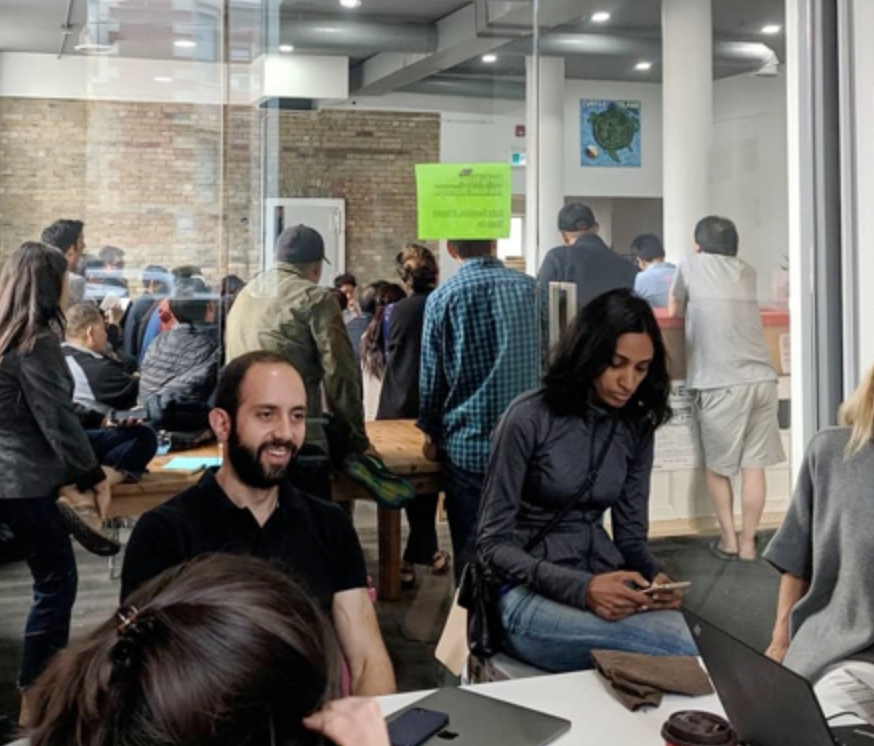Transformative, equitable change is needed right now to set America on a path to realizing the true ideals of its founding. Philanthropy has lost track of itself in recent years, as other sectors like tech have come to dominate dialogue around the future. However, throughout history, philanthropy has taken bold steps before others were ready to and has led the way to a more inclusive America. On the road to that goal, we must shift our mindsets and rearchitect the systems that have contributed to entrenched disparities. We need to rediscover philanthropy’s love of radical humanity and show the rest of the country the way to equity.
The challenge is clear, but so is the opportunity: These systems were designed by humans and they can be redesigned by humans. Indeed, visionary social entrepreneurs across America are showing us a path toward a more equitable future across education, workforce development, public health, criminal justice and other areas.

In this new online series from Worth and New Profit, ‘Rearchitecting the Future Through Philanthropy and Social Entrepreneurship,’ we will be engaging with philanthropists, nonprofits, social entrepreneurs and business leaders about how philanthropy and other sectors can transform and drive more progress in the fight for equity in America.

My name is Rusul Alrubail, and I’m writing from the perspective of an inner-city resident, working to support diverse entrepreneurs on the front lines of solving problems directly impacting their communities from health care to education, culture, mental health and technology.
Philanthropy was an unattainable tool at the start of my journey of entrepreneurship. There are several barriers in place that hinder many social entrepreneurs and diverse leaders from tapping into the capital, financing and the funding needed to grow and scale their social enterprises. However, one barrier that is certainly not in the way? Talent. Less protected communities are wellsprings of incredible insight, entrepreneurial energy and expertise within the systems we need to uproot and rearchitect.

This Series’ Lens
The direct impact that COVID-19 has had on many entrepreneurs have led to feelings of isolation, financial disparities and even pivots in business structures and models. It’s imperative now more than ever that sectors and industries adapt to the current changing landscape. The philanthropic sector needs to continue to innovate and disrupt the status quo in order to rebuild a more inclusive innovation economy.
In order for us to implement more equitable and inclusive practices, we need deliberate commitment and actions from all stakeholders for us to move forward. We believe social entrepreneurs are the key actors who can drive transformative change, but we need to dispense with entrenched bias and out-of-date conventional wisdom to give them the room to create, scale and effect serious change. This series will start an important conversation and will provide an opportunity for commitment, accountability and reimagining what the philanthropic sector will look like when social entrepreneurs are at the heart of the mandate.
Statistical facts tell us a great deal about the current state of philanthropy and where it stands when it comes to Black, Latina/x, Indigenous, people of color social entrepreneurs.

- Stat 1 – Organizations led by Black and Latino/a/x leaders receive only an estimated 4 percent of total grants and contributions in the sector today.
- Stat 2 – Organizations led by people of color win less grant money and are trusted less to make decisions about how to spend those funds than groups with white leaders.
- Stat 3 – Black, Indigenous and Latino/a/x leaders hold only 10 percent of nonprofit executive leadership roles and 6 percent of foundation executive leadership roles. “The overwhelming majority of individuals in positions of power are often least proximate to Black and Latino/a/x leaders and communities, and therefore, less familiar with the challenges they face,” according to New Profit’s report on Transforming the Social Sector: The Opportunity and Need for Action.
This is a glimpse of the bleak reality that many underserved entrepreneurs are facing. The question remains, what is changing in philanthropy and what needs to accelerate?
“One of the most important changes we’re seeing in philanthropy is a growing recognition that there is no feasible path to social problem solving at scale that does not include proximate leaders as lead architects and full partners from day one,” says Tulaine Montgomery, managing partner at New Profit.
“These proximate leaders, many of whom come from Black, Indigenous, and Latino/a/x communities that have persevered in the face of centuries of injustice, have lived experience and deep expertise on systems that can undoubtedly help us break through on intractable challenges,” Montgomery says. “But these leaders and their expertise have too often been overlooked and underinvested.”
When investors and philanthropic organizations are closest to the leaders who are solving problems within their communities, understand their challenges, and more importantly, see the value in their business and a future in scaling and funding it, we will see a transformed innovation and social entrepreneurship economy that’s inclusive.
Context Matters
COVID-19 has only highlighted the racial inequalities that have already existed systemically and has impacted entrepreneurs over the last six months. While recognizing that is a step in the right direction, we also need to recognize that now is the time to take action and intentionally work to create a more equitable innovation and philanthropic ecosystem.
Take a look at communities, businesses and main street, and let’s ask ourselves: Who has been the most impacted during this pandemic? Take a look at the stock market, while the rich are getting richer, and high technology companies have the luxury to work from home, Black-owned businesses have been hit the hardest during this pandemic.
- COVID-19 disparities: It is a well-researched fact now that racial and ethnic groups, including people of color, are most at risk of contracting, getting sick and dying from COVID-19. How does this relate to philanthropy and social entrepreneurship? It’s important to remember that ecosystems are connected, whether it’s health care, welfare, policies or food security, and as a result, such racial disparities as a result of the pandemic have impacted social entrepreneurs who are directly from those communities the hardest.
Those closest to the problem are innovating solutions that could directly move communities forward toward rebuilding resilience in a post-COVID era. Paying attention to those leaders, and recognizing their solutions will add value to the economy’s recovery and rebuilding out of this pandemic. Recognizing those leaders’ achievements and supporting them in solving these problems will also determine who comes out of this strong and who’s left behind. - Awakening to the Black Lives Matter movement: Actions speak louder than words. As there is a sudden waking to the racial inequalities Black people face around the world, foundations and philanthropic organizations need to support Black leaders to accelerate and succeed in their social missions. Here are some ways foundations could support Black leaders:
- Do community outreach and find talent and leaders who are overlooked by the system.
- Provide access to capital to sustain and scale their business.
- Make coaching and mentors accessible and part of an ongoing partnership with leaders.
- Build and grow sustainable ecosystems together.
What our context tells us during this unprecedented time is that it is vital now more than ever for philanthropy and all sectors that support social entrepreneurship and diverse leaders to move beyond the optics of solidarity statements and allyship and into a racial reckoning.
Organizations need to foster an environment where their leaders aren’t afraid to speak out on social change and racial injustice. Social entrepreneurs have too long heard that there’s no room, no opportunity or support for their ventures, businesses and communities.
Montgomery also iterated in widening networks to understand the real challenges leaders face, “we have to get better, faster and consistent in broadening our aperture and our networks, so that we can invest in, learn from and stand with these leaders to address the challenges that have been laid bare by the pandemic and the continuing outcry around racial equity.”
Connecting, listening and supporting those leaders who are directly on the frontlines of the solutions to problems that their communities face will be the change to which we incrementally can look forward to.
How can we work to rearchitect and transform the future of philanthropy and social entrepreneurship, in which the system contributes to creating a more just and equitable society for those communities who have traditionally been on the margins?
Join us for the first event in our new series, ‘Rearchitecting the Future Through Philanthropy and Social Entrepreneurship: A Tectonic Shift in Mindsets and Actions.’
Worth CEO Juliet Scott-Croxford will be joined by New Profit managing partner Tulaine Montgomery for a fireside chat on how we can unleash a new wave of progress against entrenched inequities through first changing mindsets.
Coming up as part of the ‘Rearchitecting the Future Through Philanthropy and Social Entrepreneurship’ series
- 9/25 11 a.m. ET – A Tectonic Shift in Mindsets and Actions
- 10/7 3 p.m. ET – Using a New Lens to See and Invest in Transformative Change in Education
- 10/20 11 a.m. ET – Using a New Lens to See and Invest in Transformative Change in Work
- 11/11 3 p.m. ET – Using a New Lens to See and Invest in Transformative Change in Democracy
- 11/18 3 p.m. ET – Using a New Lens to See and Invest in Transformative Change in Health Care
- 11/24 3 p.m. ET – Wrap Up: Rearchitecting the Future Through Philanthropy







